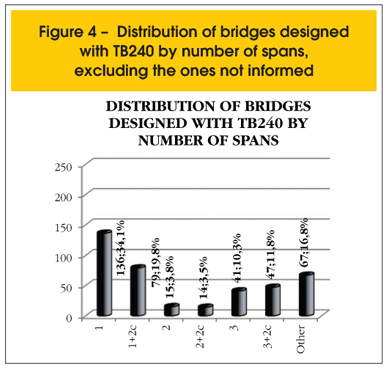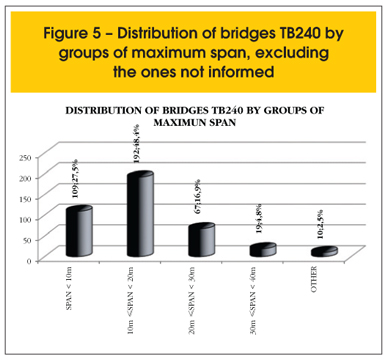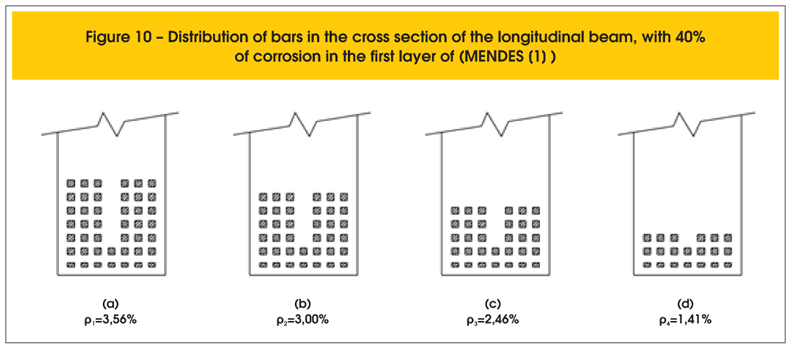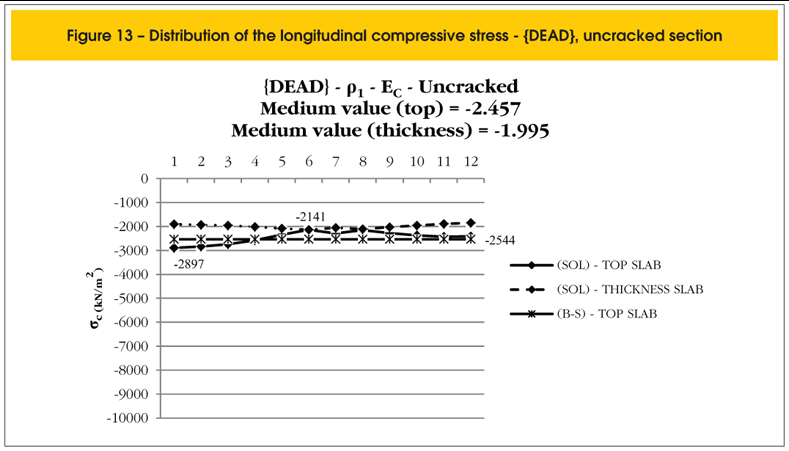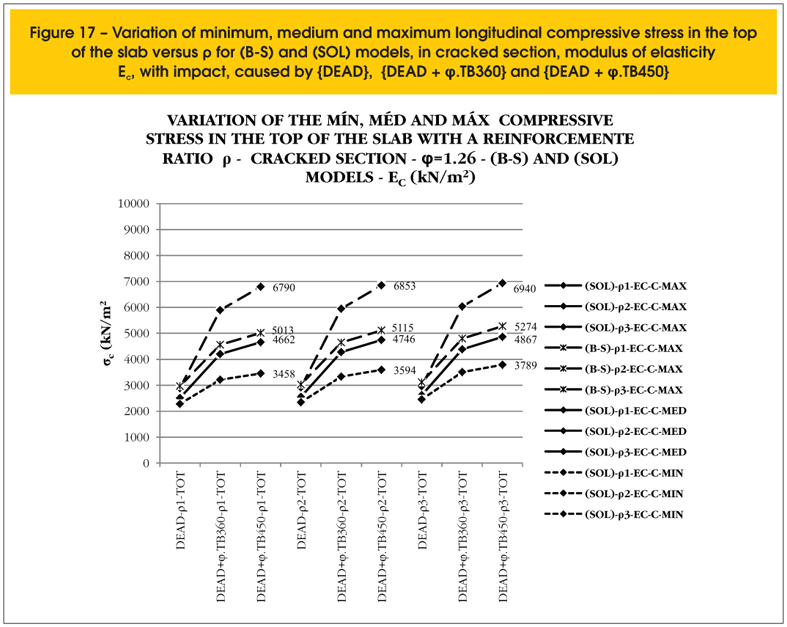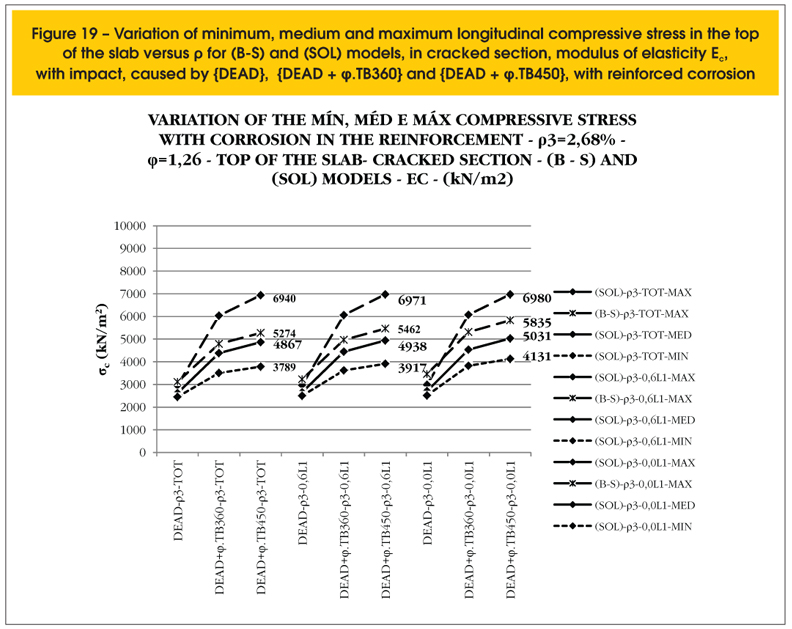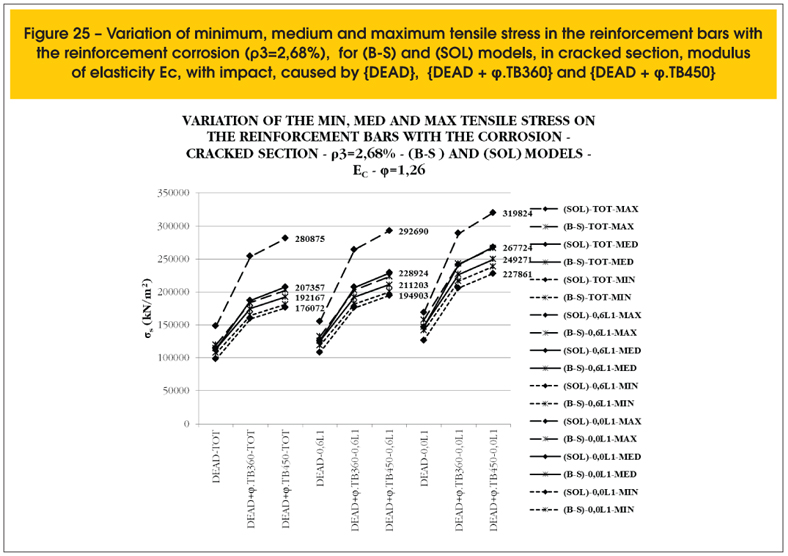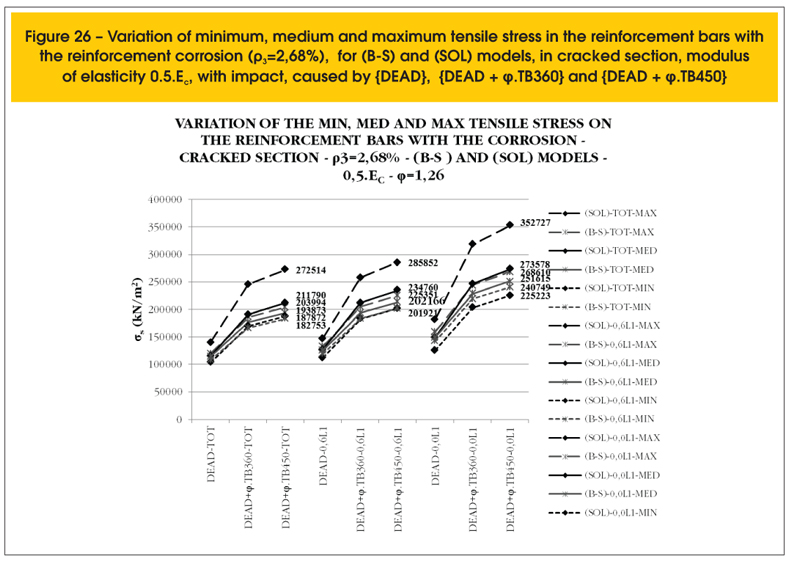Most of the Brazilian bridges of federal road network are made of reinforced concrete and are more than 30 years old, with little information about the mechanical properties of their constitutive materials. Along the service life of these bridges much modification occurred on vehicles load and geometry and in design standard. Many of them show signs of concrete and steel deterioration and their stability conditions are unknown. With the aim of contributing to the structural evaluation of reinforced concrete bridges it was decided to analyze the stresses in reinforced concrete bridge sections to verify the effects due to reinforcement corrosion and variation of the concrete Young modulus on the stress distribution regarding several load patterns and cracking effects in a representative bridge of the Brazilian road network with different longitudinal reinforcement taxes and two concrete Young modulus, Ec and 0.5Ec, and with different percentage of reinforcement corrosion. The analysis considered two finite element models: frame and shell elements as well as solid elements. The results indicate that these variation effects are more significant in reinforcement bars than in concrete.
concrete bridges; reinforcement corrosion; stresses distribution




